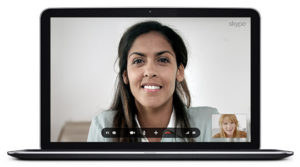Alas! We have finally reached the last blog post on Leadership Presence – self-knowing and authenticity. Over the past few weeks, we’ve discovered what leadership presence means, what it can do for you, and how to attain it. Last week we began to dissect the final piece of the puzzle in the quest to obtaining leadership presence: self-knowing. This week, we continue with this theme but discuss it in terms of authenticity.
What is authenticity? Well, at its most basic level, it means to be genuine. To be genuine is to be oneself. The ability to connect with others in the business world is of the utmost importance, however the connecting must be done genuinely, or authentically, for it to have any meaning or impact.
According to Belle Linda Halpern and Kathy Lubar, authors of “Leadership Presence: Dramatic Techniques to Reach Out, Motivate and Inspire”, there are three rules for authenticity. We shall discuss each in detail below.
Rule #1: Accept yourself and be open to growth (Halpern and Lubar 230)
Many of the greatest leaders feel comfortable and happy with themselves, despite their shortcomings. They know of their weaknesses and work to improve them, however they also accept them. When you’re aware of, and accepting of, your limitations it will allow you to develop the skills you need to overcome them. In addition, a good leader will know if their limitations cannot be overcome, at least in a timely manner, and in that case will delegate the task to someone more appropriately equipped to handle the situation. One of the best ways to accept yourself is to be open to hearing commentary about yourself and your performance, including criticism.
Rule #2: Live your values (Halpern and Lubar 235)
In the last blog, we discussed values and how important they are to a leader. Well, it’s one thing to have values, however it’s another to put them into practice, especially in a workplace setting. Halpern and Lubar suggest leaders take two related steps in order to make sure their actions are congruent with their values:
- Ask others straight up if they believe you are someone who lives your values.
- Every time you speak of your values, ask others to tell you when your actions don’t align with your values.
It’s one thing to realize or discover that your actions don’t align with your values. If and when you do realize this, it is imperative you do some soul searching in order to figure out why this discrepancy exists, and then come up with a plan to correct the discrepancy. Remember, when your actions and values don’t align, you risk being perceived as inauthentic.
Rule #3: Create an authentic connection to work (Halpern and Lubar 240)
In order for a leader to be their most inspiring, authentic self, they must connect their values and interior life to the work that they do, similarly to how actors need to create a true connection to the characters they are portraying. At the end of the day, it is simply about creating meaning; if you truly believe in what you do and say, others will recognize that and will want to follow you. Connecting authentically with others allows the leader, as well as the led, to connect with something “bigger than themselves and their own self-interest” (Halpern and Lubar 247).
Being a leader is not about being “the boss”; it is about much more than that. It’s about inspiring, connecting, and motivating others to succeed and reach their highest potential. It is about communication, values, and the ability to make decisions. The steps we’ve outlined over the past few weeks are not necessarily the easiest things to do (opening up to others and becoming vulnerable is typically an anxiety-causing activity for most), however, if put into practice, they will help you achieve the leadership presence you deserve and need to reach the next level.
Works Cited
Halpern, Belle Linda and Kathy Lubar. Leadership Presence: Dramatic Techniques to Reach Out, Motivate and Inspire. New York: Gotham Books, 2003. Print.



